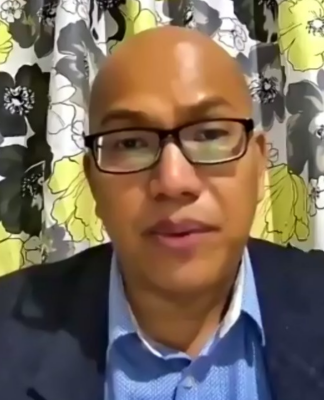RESPECT for one’s dignity is the answer to societal problems like human trafficking, according to Catholic Church leaders.
Around 500 religious leaders gathered in a forum last month against human trafficking, the illegal exploitation of a person into forced labor or prostitution.
“Freedom Forum 2013: A Multi-Sectoral Gathering Against Human Trafficking,” was held last Sept. 5 at Christ’s Commission Fellowship in Pasig to tackle solutions to human trafficking.
It was organized by the Catholic Bishops’ Conference of the Philippines (CBCP) and different religious organizations such as the Philippines Council of Evangelical Churches (PCEC) and National Council of Churches in the Philippines (NCCP).
The Philippine Interfaith Movement against Human Trafficking was launched during the forum. It aims to bring together the Church, government and civil society groups in establishing awareness, protection, and after-care projects for victims.
Bishop Broderick Pabillo, chairman of the CBCP National Secretariat for Social Action, said each person should be involved and should avoid being “passive” on human trafficking issues.
Pabillo, the keynote speaker, added that each person should be aware of the importance of justice in eradicating human trafficking.
“That’s why this is a freedom forum, setting people free from any kind of slavery. But [it is] not only that. Together with justice, [there] is sharing your bread with the hungry, sheltering the oppressed and the homeless, clothing the naked when you see them,” Pabillo said.
Jose Umali, anchor of the “Hardin ng Panalangin,” program, over radio station DZAS, noted that human trafficking, considered as “modern-day slavery,” could be solved by upholding acts of justice, mercy and obedience to God’s will.
Spirituality and dignity
Umali said a person’s spirituality played a vital role in prioritizing one’s dignity over material things such as money, often used by traffickers to lure victims.
“You would not be easily fooled by those traffickers who offer material things if you have a close connection with God. It would not be those material things that would dictate how your life should be, it always goes with spirituality,” Umali said in an interview with the Varsitarian.
Pabillo emphasized the importance of respecting the dignity of each person.
Meanwhile, Jedrek Ng, prosecutor of the Inter-Agency Council Against Trafficking (IACAT) said human trafficking cases in the country are increasing.
“The Philippines has become the source, destination and transshipment point of human trafficking. A lot of the trafficking victims came from the Philippines. Sex tourists would visit our country and conduct their sexual activities within certain provinces or cities,” Ng said.
Ng reported that around 2,021 cases of trafficking were filed within the prosecutor’s office and in the ports nationwide since 2012. A total of 129 traffickers have been convicted as of August 2013.
The Philippines is one of the countries with the most number of trafficking incidents, according to the U.S. Global Trafficking report.
“Three years ago, we were included in a watch list, but right now we’re removed and government has exerted efforts to fight trafficking, but it is not enough,” Ng said told the Varsitarian.
The top three regions with the highest number of cases were the National Capital Region (particularly Manila, Quezon City and Pasay City), Region VII (Central Visayas) and Region III (Central Luzon).
Meanwhile, Cebu, Pampanga and Quezon are the provinces with the highest record of trafficking incidents. A total of 99 cases were recorded from July 2010 to July 2013.
“We see the problems of these vulnerable people, but we shut our doors. We keep ourselves unstained by the world of self-interest. Let us be the voice of the voiceless,” Pabillo said.
















